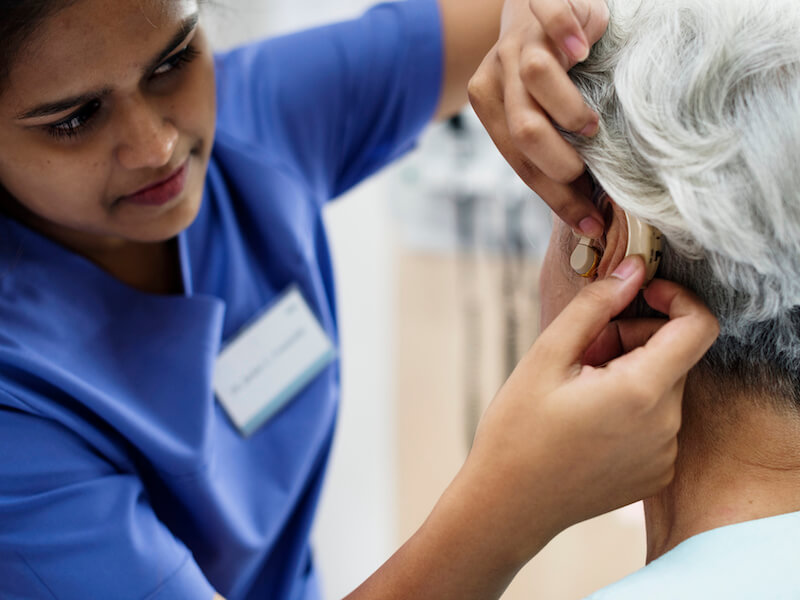
If you use hearing aids but you’re still having trouble hearing, your hearing aids may need professional maintenance.
You take care of your hearing aids. You baby them. Cleaning them daily, you make certain they are snug on their charger when you go to sleep.
That’s why it’s so frustrating that, suddenly and distressingly, your hearing aids aren’t working properly. Thankfully, there are some things you can do to resolve the problem. Just remember: avoiding damage is your first task (or else replacing them could be required).
Your Hearing Aid Might Need Troubleshooting
Always consult your owner’s manual when doing upkeep and troubleshooting as every model of hearing aid can be somewhat different. Here are a few things you can check on most models:
- Examine your battery: Always check your battery power even if you’re certain your hearing aid charged all night. If your hearing aid has changeable batteries, it may be a good idea to check if those batteries are inserted properly or if a new one fixes the issue.
- Keep your microphone clear: Check for anything blocking the microphone of your hearing aid. An obstructed microphone can cause feedback or can cause your hearing aids to sound broken or silent.
- Wax buildup: Perform a visual inspection of your hearing aid to make sure that there is no wax accumulation preventing ordinary operation. Wax builds up rapidly so even if you have a regular cleaning schedule you still need to pay attention to this.
- Look for noticeable damage: Loose components or cracks may develop around the shell of your hearing aids so don’t forget to check for that. Cracks could allow moisture in and may be a sign of further damage.
Again, check your owner’s manual on how you should address each of these issues. Self maintenance will be possible in some cases. (Your owner’s manual is the best place to start.)
When Does my Hearing Aid Require Repair?
If your hearing aid keeps malfunctioning after you have carried out basic maintenance and troubleshooting, it’s likely that your hearing aid will require professional repair. Because you depend on your hearing aids for all of your everyday conversations and social activities, this most likely doesn’t sound very attractive.
However, it’s worth mentioning that “repair” doesn’t always mean you need to “send your hearing aid out” for service and wait a few weeks. In some cases, we can fix it while you wait.
That means, in some cases, you’ll be able to bring your hearing aids in for professional maintenance and get them back in a matter of minutes or hours (this is why it’s a smart idea to bring your hearing aid in so we can ascertain the damage).
Not all scenarios can be fixed in house though. And on those occasions, you might find yourself in need of a backup pair of hearing aids. An old pair might be able to do a decent job as a backup so if you have an old pair, bring them in with you. There might even be a loaner set at our office that we can loan you until you get yours back.
Don’t Wait to Get Help With Your Hearing Aids
If the hearing aids are beginning to fade, the audio quality is starting to fail, it’s essential to have it repaired.
If you do this you will be more likely to eliminate any downtime. Untreated hearing loss can influence your general health, including your mental health. Moreover, once your hearing aids are forgotten in a box somewhere, it’s all too easy to pretend they don’t exist, even as, your hearing progressively worsens.
Your best chance of getting the maximum help from your hearing aids is to keep them functioning at their highest quality. And the best way to do that is to clean them, keep them charged, and, when necessary, take your hearing aids to get some professional help.
The content of this blog is the intellectual property of MedPB.com and is reprinted here with permission.
The site information is for educational and informational purposes only and does not constitute medical advice. To receive a personalized free hearing test and hearing loss consultation, call today to set up an appointment.










